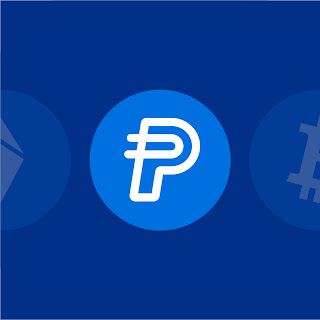
In a significant development, PayPal, the well-established American financial powerhouse and technology company, has entered the cryptocurrency arena by introducing its proprietary stablecoin, PayPal USD (PYUSD). This stablecoin, backed by US dollar deposits, has ignited considerable interest within the cryptocurrency community. Let's delve into the core highlights of this event and the potential ramifications it holds for the crypto landscape.
PayPal's Cryptocurrency Debut and PYUSD Stablecoin
On the 7th of August, PayPal made a distinctive stride by unveiling its customized stablecoin, PayPal USD (PYUSD). Constructed on the Ethereum blockchain, PYUSD aims to revolutionize digital payments and further integrate web 3 technologies. This strategic move by PayPal underscores its recognition of the escalating significance of cryptocurrencies and stablecoins in today's financial ecosystems.
Mainstream Acknowledgment and Regulatory Impacts
PayPal's decision to release its stablecoin on the widely accessible Ethereum blockchain carries significant implications. This strategic choice bolsters the credibility of cryptocurrencies and web 3 technologies, serving to validate stablecoins as credible financial instruments. Furthermore, this development holds noteworthy regulatory implications, signifying that well-established financial entities are increasingly adopting stablecoins and contributing to the formation of clearer regulatory frameworks.
Bitcoin and Ethereum ETF Prospects
As the cryptocurrency realm observes PayPal's entrance into the stablecoin space, notable advancements are also seen in the exchange-traded fund (ETF) arena. The likelihood of an Ethereum ETF gaining approval in the United States has surged, with Bloomberg analysts estimating a notable chance of success. This optimism is fueled by shifts in regulatory sentiment and the prior approval of Bitcoin Futures ETFs. If Ethereum and Bitcoin spot ETFs gain approval, it could herald a new era of crypto-centric financial products.
Polygon's Evolution to Polygon 2.0
Another remarkable progression is Polygon's transformation to Polygon 2.0. Aiming to establish an interconnected and infinitely scalable web 3 ecosystem, Polygon 2.0 seeks to unify liquidity and composability across multiple blockchain chains. This ambitious endeavor has the potential to redefine how we interact with decentralized applications and tokens across diverse chains, simplifying user experiences and eliminating complexities.
Exclusion of Canadian Users from PYUSD
It's crucial to highlight that Canadian users utilizing the Canadian PayPal platform do not have access to PayPal's PYUSD stablecoin. This exclusion means that Canadian users miss out on the opportunity to engage with this innovative stablecoin via their familiar platform.
The Future Path - Implications and Prospects
PayPal's venture into the cryptocurrency realm through the introduction of PYUSD underscores the growing acceptance and integration of digital currencies into conventional financial systems. This strategic move not only underscores the potential of stablecoins but also lays the groundwork for further innovations and financial product offerings. As regulatory landscapes evolve and more financial powerhouses explore the world of cryptocurrencies, we can anticipate transformative shifts that reshape the perception and utilization of currency in the digital age.
www.paypal.com/us/
More Articles Below









